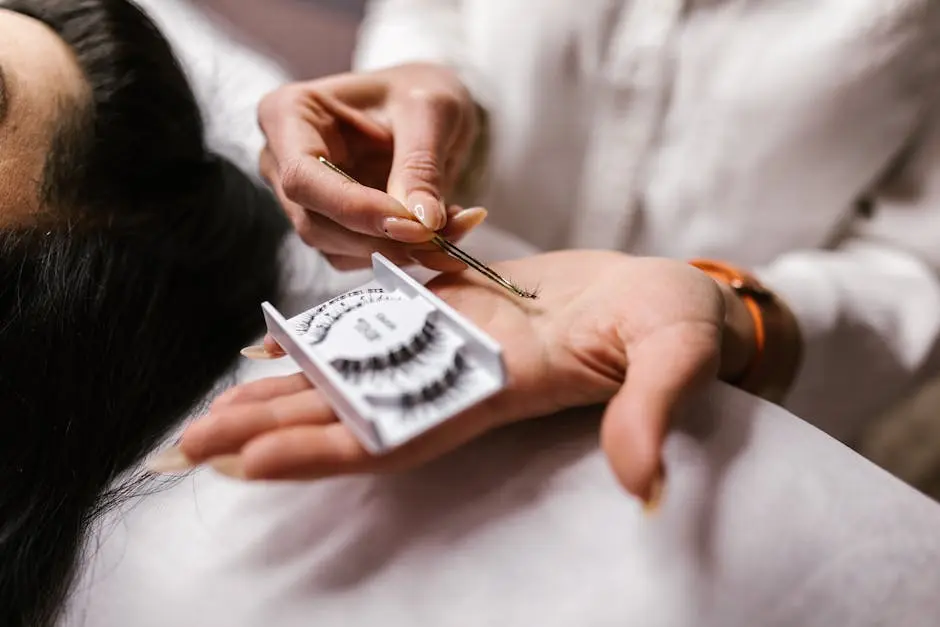If you have sensitive eyes, you may be wondering if classic lashes are a good option for you. In this FAQ, we’ll explore the safety of classic lashes, the materials used, and how to care for them to ensure your eyes remain comfortable and healthy.
Understanding Classic Lashes
Classic lashes involve the application of one extension to each natural lash, creating a subtle and elegant look. It’s important to know how they differ from other styles.
Unlike volume lashes, which add multiple extensions to each natural lash, classic lashes provide a more natural enhancement. This makes them an excellent option for those seeking a refined appearance.
When applied correctly, classic lashes can enhance your eyes without overwhelming them. Many find this style appealing as it offers a delicate blend of elegance and simplicity.
It’s crucial to choose a qualified technician for application. A skilled professional will ensure that the lashes are applied safely and appropriately, taking your eye sensitivity into consideration.
Potential Risks for Sensitive Eyes
For those with sensitive eyes, the adhesives and materials used in classic lashes may cause irritation or allergies. Understanding these risks is crucial.
Common symptoms of irritation can include redness, itching, or discomfort. If you experience any of these, it’s important to consult with your lash technician or a healthcare provider.
Certain adhesives contain formaldehyde, which can exacerbate sensitivities. Always ask about the specific products being used, ensuring they are safe and suitable for your needs.
Moreover, if you wear contact lenses or have a history of eye allergies, be sure to mention these factors during your consultation, as they could influence your experience with classic lashes.
Choosing the Right Products
Selecting hypoallergenic adhesives and high-quality lash extensions can significantly reduce the likelihood of adverse reactions. Look for reputable brands and salons.
Do your research. Many salons pride themselves on using only the best products. Make sure you check reviews and ask for recommendations from friends or social media.
Another tip is to request a patch test. This simple procedure can help identify any potential allergies before you commit to a full lash application, offering peace of mind.
Aftercare Tips for Sensitivity
Proper aftercare can help maintain the health of your eyes and lashes. Avoiding certain products and following care guidelines can keep your eyes comfortable.
It’s advisable to avoid oil-based makeup removers, as these can break down the adhesive used for your classic lashes. Instead, opt for gentle, water-based products.
Additionally, remember not to rub your eyes too vigorously, as this can lead to irritation or loss of lashes. If you feel discomfort, gentle cleansing is key.
Lastly, regular maintenance appointments are essential. These sessions help ensure your lashes are maintained properly, making for a more comfortable and beautiful experience.
Consulting with a Professional
Before getting classic lashes, it’s essential to consult with a beauty professional who can assess your specific needs and recommend the best approach.
During your consultation, openly discuss your sensitivities, lifestyle, and desired look. A skilled technician can tailor their approach to suit you.
Don’t hesitate to ask about their experience specifically with sensitive eyes. A knowledgeable professional will have valuable insights and be able to recommend suitable products.
Ultimately, taking the time to find a trusted expert can make all the difference in ensuring that your experience with classic lashes is nothing short of fantastic.
Final Thoughts on Classic Lashes and Sensitive Eyes
In summary, classic lashes can be a safe choice for those with sensitive eyes, provided you take the necessary precautions and choose high-quality products. Always consult a professional to determine what is best for your unique needs and sensitivities.








